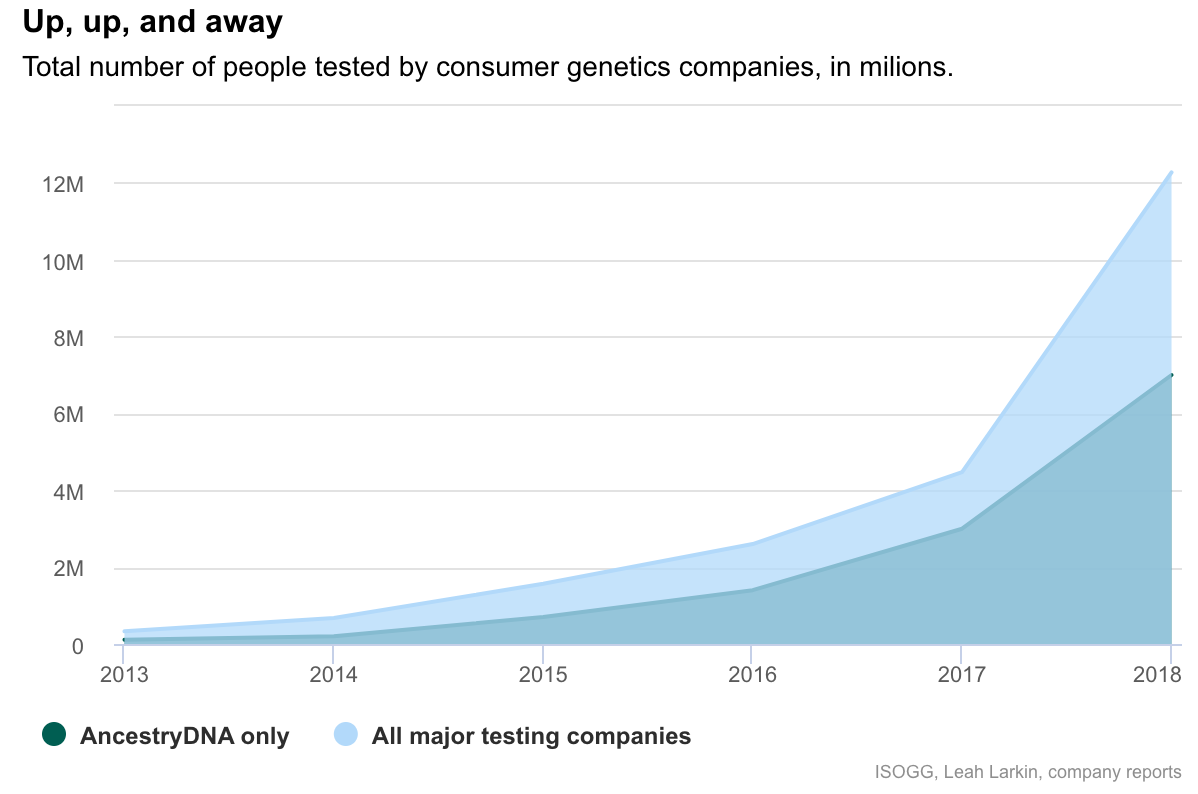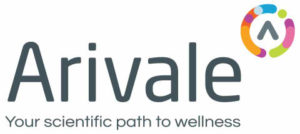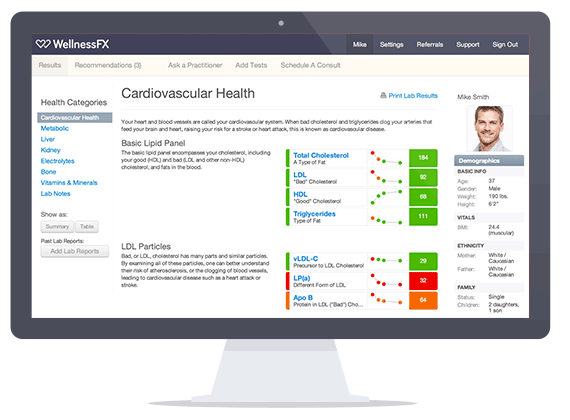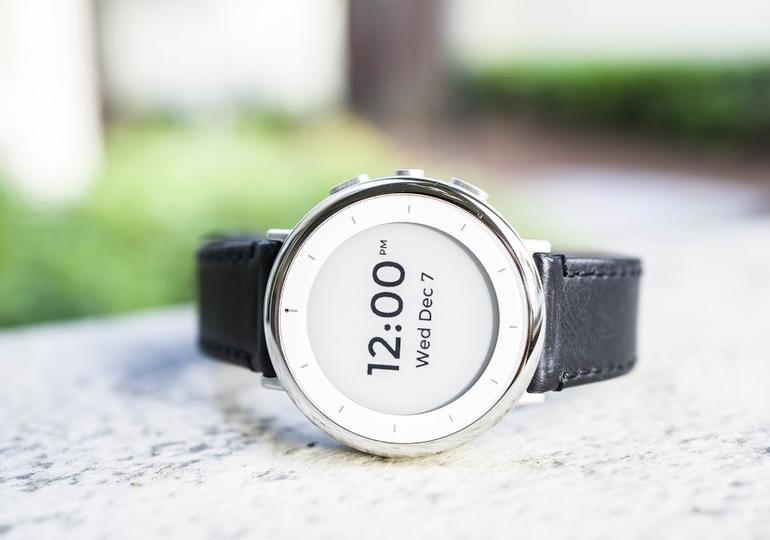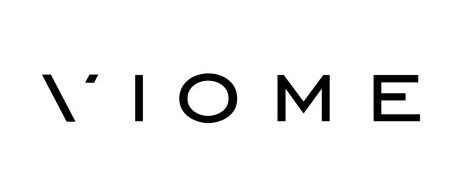Data-intensive health-tech companies
(Updated June, 2019)
The data-intensive wellness space is getting crowded these days. Lots of companies are forming around the idea that, in one way or another, data will transform health care. We’re moving into a world where everything is measured for better or worse. Might instrumenting ourselves like aircraft engines open up new ways to optimize wellness?
One dimension of the personal health data cloud is genetics. A group at the Broad Institute says, “We propose that it is time to contemplate the inclusion of polygenic risk prediction in clinical care.”
The New York Times write-up on the researcher’s findings makes this point in relation to polygenic risk scoring for cardiovascular disease, “DNA is not destiny […]. A healthy lifestyle and cholesterol-lowering medications can substantially reduce risk of heart attack, even in those who have inherited a genetic predisposition.” Activity, diet and other lifestyle factors are also important dimensions.
Health-care is not easy. Big tech firms like Microsoft and Google have tried their hand only to pull back when faced with complex economics and a byzantine regulatory environment. It is not without reason that the existing medical system has resisted the idea of a bunch of tech-bros moving fast and breaking things.
Recent moves, especially Amazon’s, might prove to be better conceived.
A grab-bag of health-tech
The intersection of technology and health, particularly AI and personalized health is clearly the way forward but also a bit of a minefield. It’s interesting to compare the different approaches companies are taking based on where they’re innovating and where they’re integrating into the traditional healthcare system. Getting to a workable mix of innovation and integration is key.
Here’s an occasionally updated grab-bag of companies that I think are doing interesting things in health-tech.
23andMe
23andMe, the 800-pound gorilla of direct-to-consumer genetics, surpassed 5 million genotyped customers as of May 2018 and nabbed $300 million from GSK.
- 23andMe Is Terrifying, but Not for the Reasons the FDA Thinks
- 23andMe’S Pharma Deals Have Been The Plan All Along
- Big Pharma Would Like Your DNA
98point6
Seattle-based 98point6 is basically a primary care doctor in an app.
Ancestry
Genealogy service, Ancestry claims over 2 million paying subscribers and, as of February 2018, more than seven million AncestryDNA customers. After IPO in 2009, the company was acquired in 2016 by private equity firm Silverlake.
Arivale
Seattle-based Arivale spun out of research done at the Institute for Systems Biology.
Arivale analyzes genetics, blood chemistries, saliva and microbiome. Coaching by a certified nutritionist helps members understand and act on their results making changes towards healthier eating, exercise and sleep.
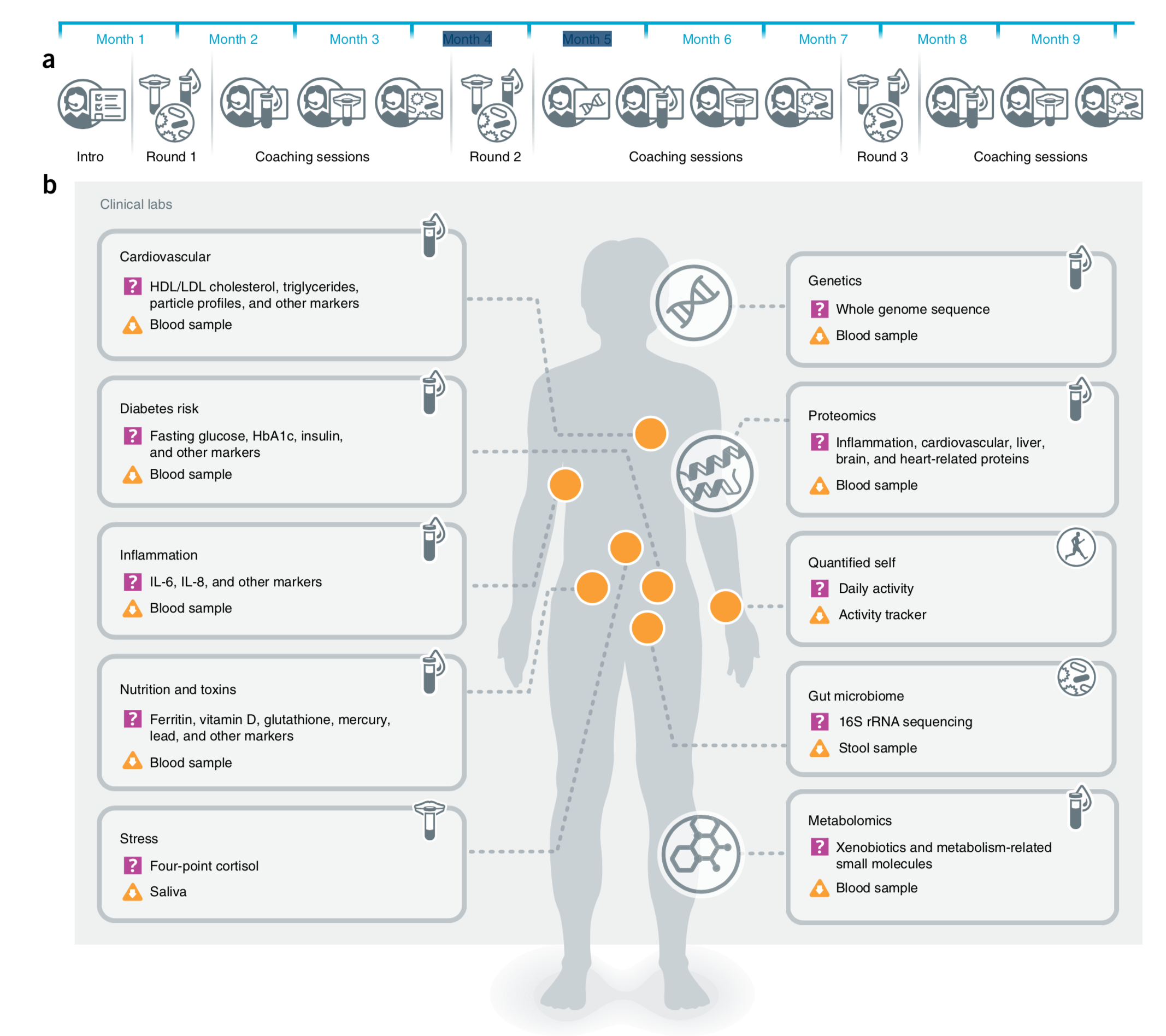
I spent a happy and interesting two years plus a bit as part of the Arivale team. Sadly, Arivel ran out of runway at the end of April.
AthGene
Sold in 2017, Copenhagen based AthGene was conceived as a genomics service for athletes offering insights into metabolism, nutrition, and fitness.
One smart move was offering to import your 23andMe data. “Discover your bodies natural fitness genetics potential by importing your 23andMe results onto the AthGene platform – for FREE”
Interview with Yusufa Sey, CEO of AthGene
Base10 Genetics
Physician led Base10 Genetics is a nascent company doing pharmacogenomics and nutrigenomics.
Color Genomics
Color sells genetic tests for hereditary risk for cancer and heart disease.
Counsyl
Prenatal and cancer screening company just bought by Myriad Genetics for $375 million.
Grail
GRAIL is using deep sequencing of circulating cell-free nucleic acids to develop assays to detect cancer early in blood.
Habit
Habit focuses on nutrigenomics. To start, you get an at-home test kit with cheek swabs, finger-prick blood tests and a “proprietary, clinically-validated Habit Challenge® Shake”. Arivale co-founders Lee Hood and Nathan Price are on the advisory board. Habit allows import of genetics from 23andMe or AncestryDNA.
- Then again, maybe personalized nutrition isn’t going to solve our diet problems.
Helix
Helix aims to be an app store for DNA. They’re well funded, starting with $100 million from Illumina and closing an additional $200 million in March in a series B round.
Human API
Human API is a data provider that helps connect applications to sources of health data from medical records, labs, pharmacies, and devices. This is such a smart idea - basically messy difficult data in, cleaner easier data out.
Human Longevity
Craig Venter’s boutique version of 23andMe. Oops, not Craig Venter’s any more. Under new management, the company is focusing on raising money, lowering cost and scaling.
iCarbonX
“iCarbonX aims to build an ecosystem of digital life based on a combination of an individual’s biological, behavioral and psychological data, the Internet and artificial intelligence.”
Founded in 2015 in Shenzhen, iCarbonX finished its A-round financing led by Tencent with 1 billion yuan plus another 0.3 billion in 2016. (1.3 billion CN¥ ≈ 200 million USD.) Founder and CEO Jun Wang formerly led Beijing Genomics Institute (BGI).
iCarbonX leads the Digital Health Alliance with a group of life-science companies including PatientsLikeMe. HealthLoop, and HealthTell a company based on an immune assay.
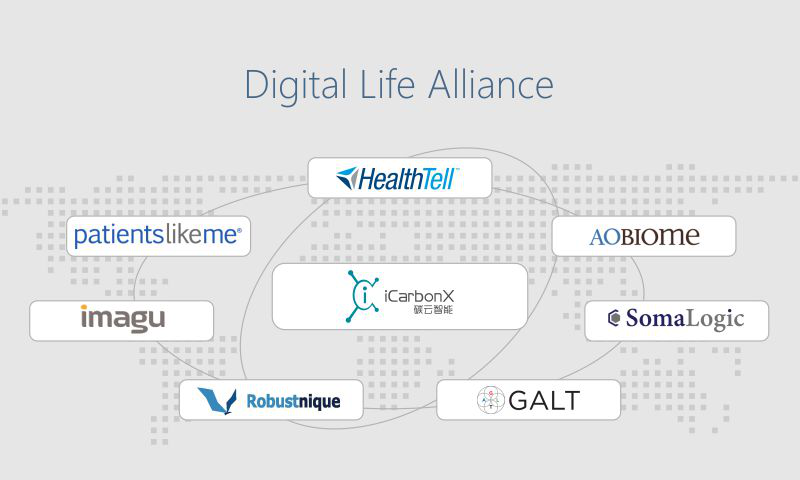
(Updated as of April, 2019) This alliance is now threatened by the ongoing U.S. - China trade war. The Treasury Department’s Committee on Foreign Investment in the U.S (CFIUS) has ordered ICX to divest, as part of increasingly rigorous scrutiny of foreign and specifically Chinese investment, especially where patient data is involved.
Apparently they’re going to have a sweet building in Shenzhen, if this thing really gets built:

InsideTracker / Segterra
InsideTracker is an app for personalized health analytics that seems to be targeted towards athletes.
![]()
January.ai
January.ai stated goal is “Leveraging science and technology to optimize health”.
“Using machine learning, we synthesize personal data with our expertise in systems biology to put control back in the hands of individuals who seek optimal performance and productivity.”
Standford Professor Michael Snyder is a founder of January.ai as well as Q.bio, previously.
MultiScale Health
MultiScale Health is a Seattle company founded by a pair of Amazon alumni in partnership with Providence St. Joseph Health that’s positioning itself as a health data broker. “The company partners with health systems to bring their internal data onto a cloud platform, which lets the systems have easy access to that data and build new applications on top of it.”
Orig3n
Boston-based Orig3n sells DNA tests related to fitness and nutrition. “Empowering everyone with actionable insights about wellness through DNA Testing…” sounds vaguely familiar. But, not a data play: “Privacy is of the utmost importance at #Orig3n; your data is never sold or shared.”
Pathway Genomics
Three of Pathway Genomics’s executives are M.D.’s with another handful of physicians on their advisory board. Their offer is to help “uncover your personal path to a healthier lifestyle” giving “scientifically proven genetic nutrition/fitness guidance”. They coach on lifestyle focus areas like nutrition, skin, and weight. On top of that, having doctors on board allows Pathway to operate in medical spaces including mental health, prenatal screening, cancer and heart health.
Privia Health
Privia Health describe themselves as a “physician practice management and population health technology company”. What this seems to mean is providing a Kaiser-like co-ordinated care experience for a network of independent physicians.
Pursuant Health
Pursuant Health operates health kiosks in places like pharmacies and Walmarts where you can measure health indicators like weight, blood pressure, BMI and heart rate.
Q.bio
In 2015, Michael Snyder, following a key role in the ENCODE project, helped found Q.bio which he and his cofounders described as a positive feedback loop for humanity. Maybe superceded by January.ai?
SOPHiA
Swiss startup SOPHiA Genetics develops variant analysis technology with the aim of “democratizing Data-Driven Medicine”.
Sema4
Sema4 is led by Eric Schadt, formerly with Pacific Biosciences and Rosetta Inpharmatics. The company provides genetic screening and counseling while building a health and genomics data pool as a research platform. Their tests include a catalog of rare genetic diseases along with variants relevant to cancer and pharmacogenomics.
“Sema4 is a next generation health information company, spun out of the Mount Sinai Health System, that provides advanced genomic testing and merges big data analytics with clinical diagnostics.” “Sema4 is an innovative partnership of scientists, doctors, engineers, and genetic counselors dedicated to empowering healthier living through data.”
Sema4 is tightly integrated with it’s parent, Mount Sinai medical center. Its prenatal tests are ordered by physicians. They’re also trying the direct-to-consumer route through the Helix platform.
Thorne Research
Supplement maker Thorne Research announced a partnership with Drs. Joel Dudley and Chris Mason, called Pillar Health at first and now called Onegevity, offering comprehensive analysis of blood, genetic, and microbiome data through an AI platform for precision wellness solutions.
“Onegevity will provide a comprehensive molecular portrait and customized recommendations for an individual’s health based on integrated analysis of longitudinal blood, genetics, and gut microbiome profiles.”
Dudley of Mount Sinai is a former student of Atul Butte. Christopher Mason is a geneticist at Cornell. Maybe this is in stealth mode, but it’s not clear what’s come of this besides a twitter account.
In 2016, Thorne acquired WellnessFX provider of dashboard views of lab tests based on genetics and blood panels. It’ll be interesting to see if or how this gets combined with Pillar.
- Startup Pillar Health Aims to Marry Consumer Genomics, Wellness
- Strategic investors Mitsui And Kirin (summer 2018)
- Mitsui and Kirin to Jointly Invest in Thorne Research
Verily Life Sciences
Formerly known as Google Life Sciences, Verily Life Sciences started out under the cloud of a management kerfuffle.
Project Baseline kicked off in 2017. Participants get sequenced, have their blood, microbiome and immune system assayed, and wear a spiffy watch.
As of May 2019, Novartis, Otsuka, Pfizer and Sanofi have signed on to run clinical trials with Verily.
Jessica Mega talk on Verily Baseline project
Jessica Mega, Chief Medical Officer of Verily, gave a short talk at a Stanford Medicine Big Data conference in 2017 describing the Verily Baseline project and it’s goals. A couple key slides:
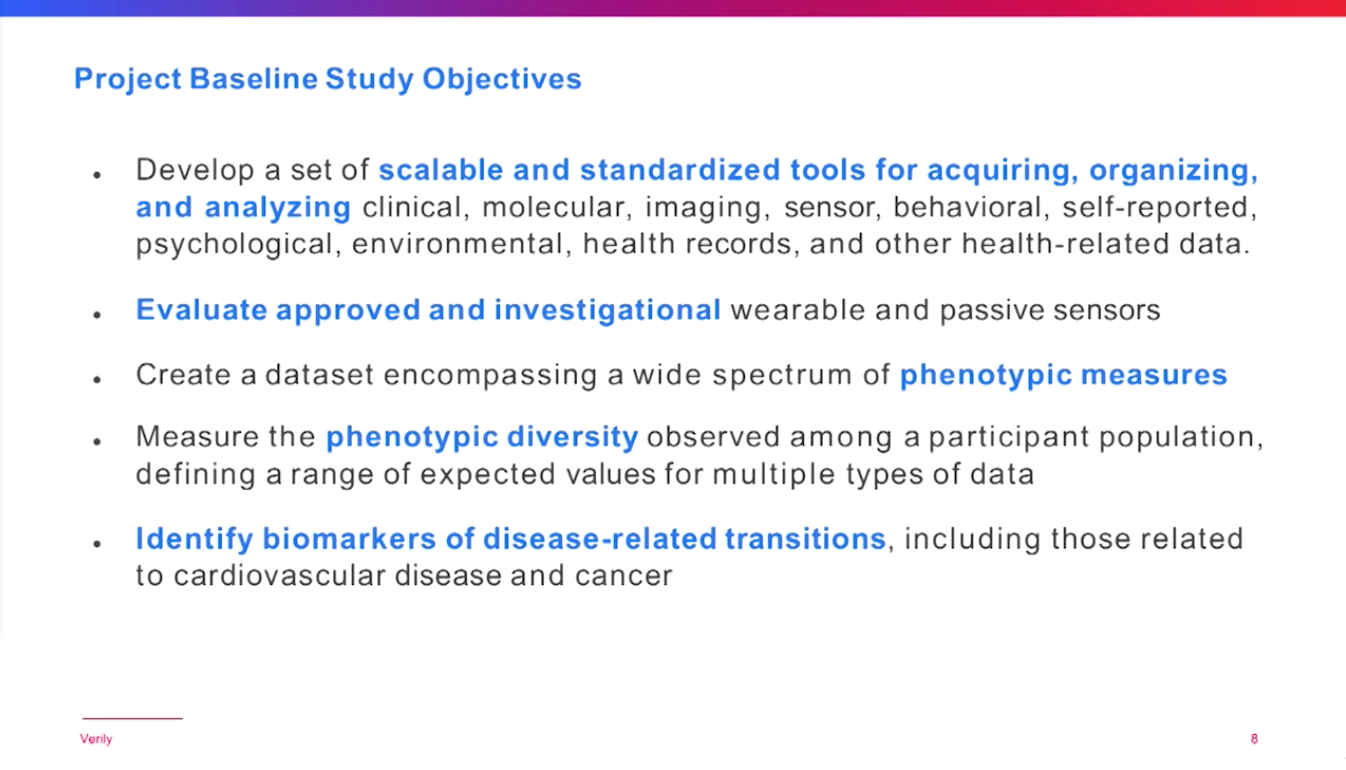
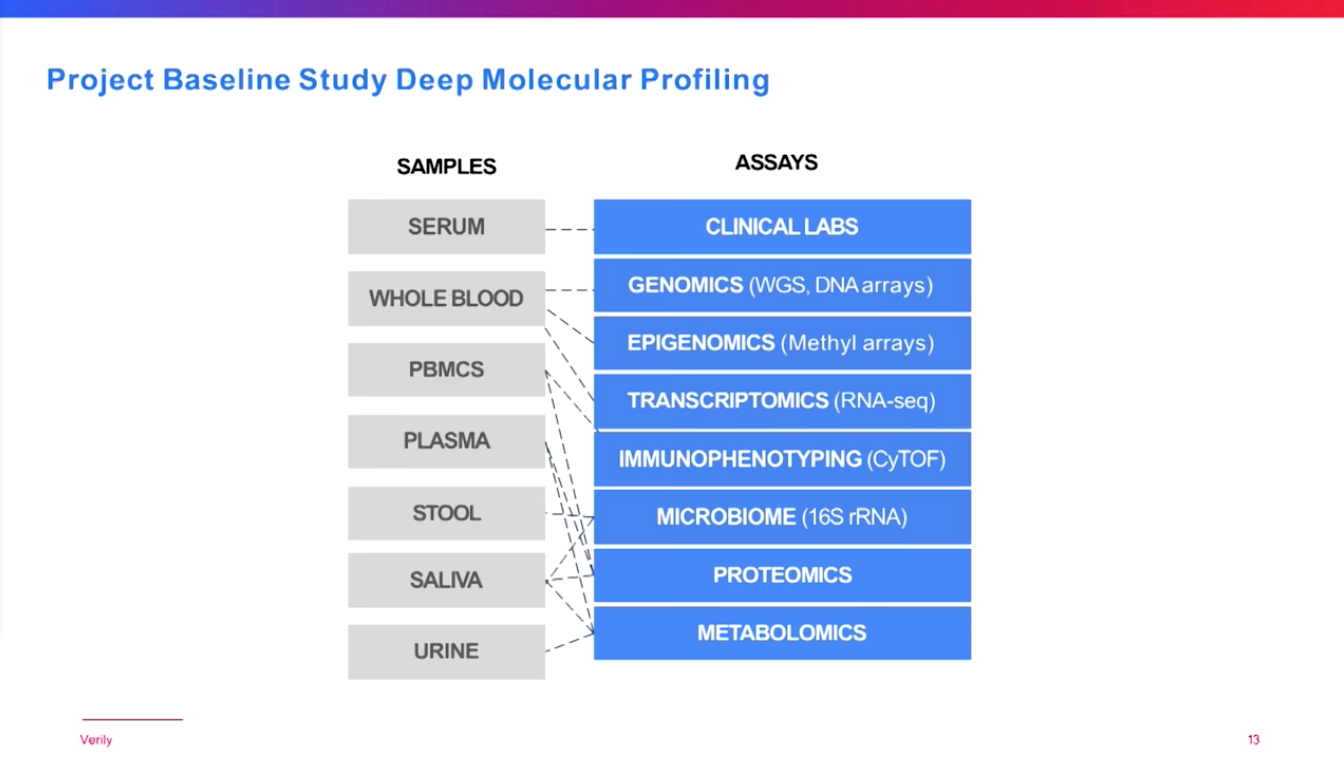
Veritas Genetics
Veritas Genetics: 23andMe with whole genome sequencing. George Church is a founder.
Viome
Poop is cool these days. Viome is a well funded direct-to-consumer product that analyzes your gut microbiome to give personalized food recommendations. Interestingly, they do gene expression sequencing to get at quantifying activity of microbial metabolic pathways.
